
1 min
OpenGoogle SpamBrain
3 mins
31 January 2023

Google is constantly shifting and evolving, with its developers coming up with new and intuitive ways to display answers to users’ search queries. One recent development is the ‘rich answer’.
Also known as ‘rich results’, rich answers are becoming increasingly important to SEO as Google users are coming to rely on them for both quick answers to quick questions and breakdowns of complex topics.
The best way to answer that question, appropriately enough, is by showing you a rich answer:
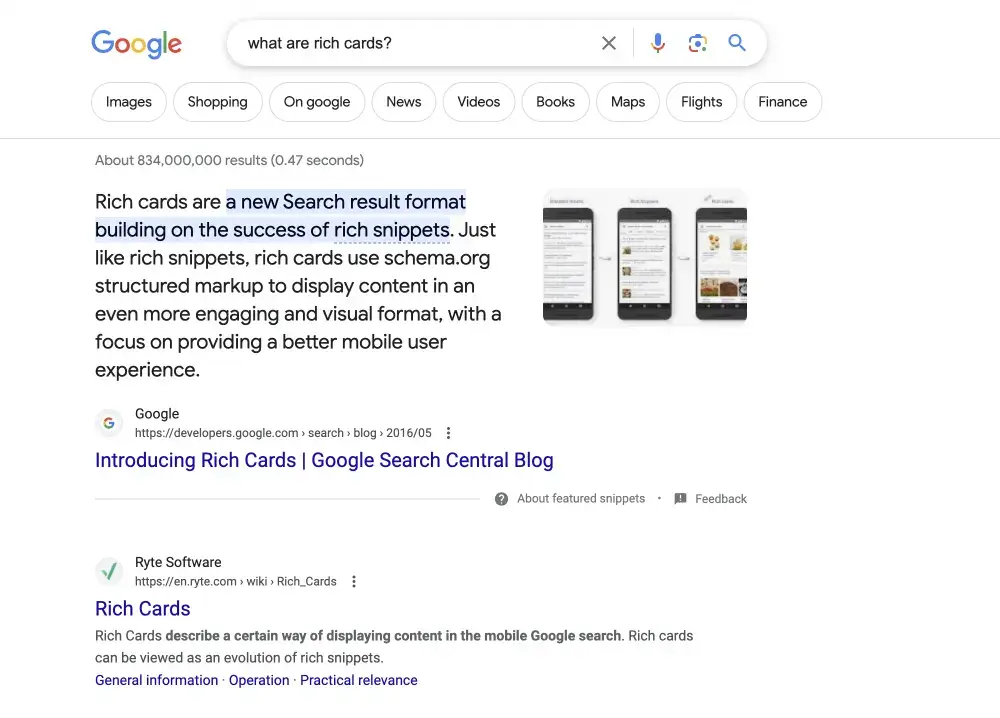
Rich answers are the snippets of information often found in boxes above the normal search results, with rich results taken from websites that Google considers to be authorities in their subject matters. These answer a question in a comprehensive and readable way and use a form of structured data markup that helps Google display them dynamically.
Though infrequent at first, Google is increasing the number of rich answers it presents. Some have calculated that Google displays rich results for up to 31.2% of search queries. At the moment, this is likely a vast overestimate, as most one-word or non-question searches do not return rich answers. Still, given Google’s use of ‘rich cards’ and the advent of AI, it seems likely that rich answers will only grow in prominence as Google continues to change and adapt.
Rich answers can appear in a variety of formats depending on what kind of search query a user has entered and what kind of answer Google thinks it needs. Each kind has a different look, intended for a different purpose or functionality.
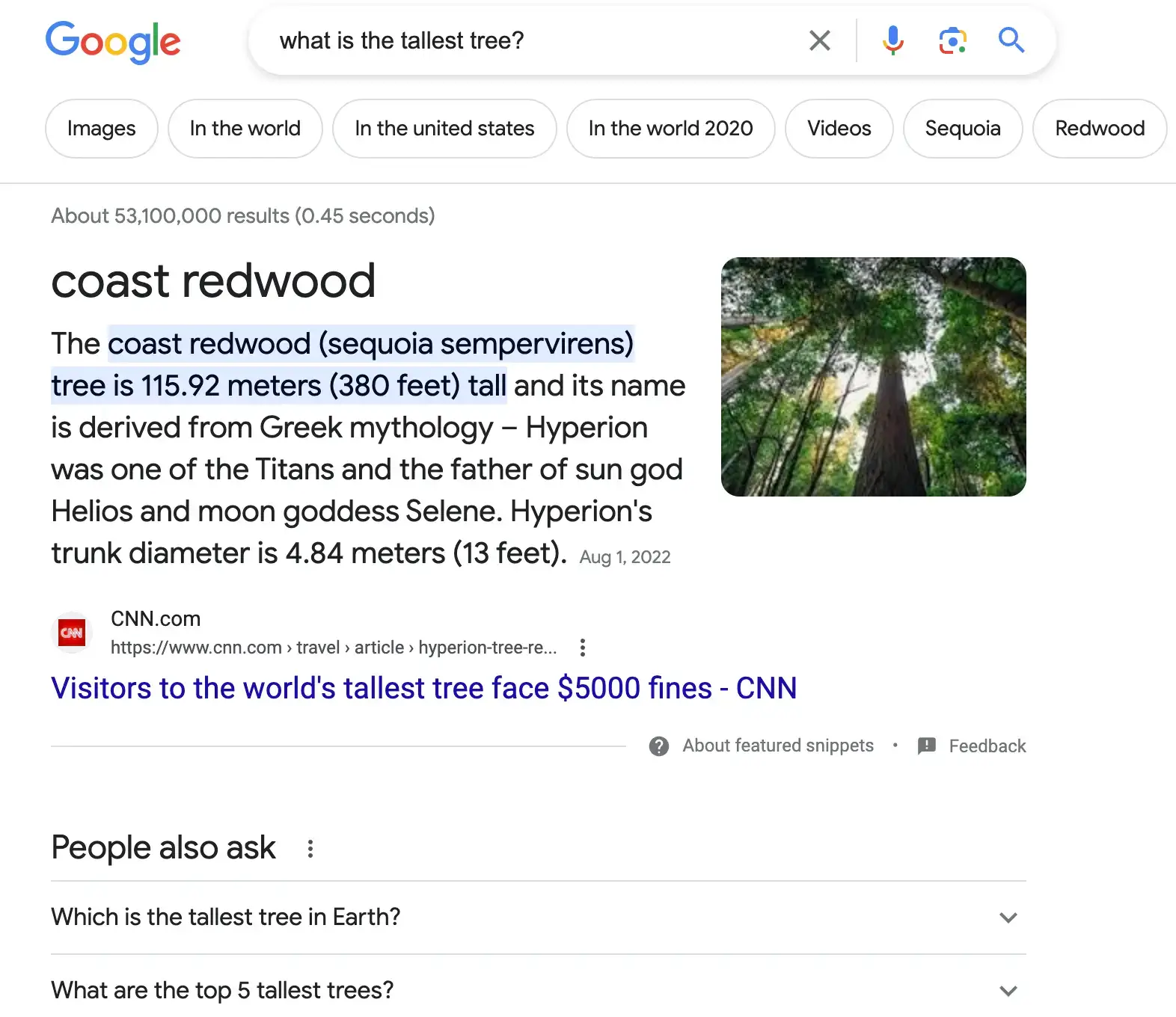
Rich snippets (sometimes known as ‘featured snippets’) were the first kind of rich answer and are still the most common. They consist of a text box encompassing an excerpt of text taken from a web page, often with an image.
Rich snippets can often take the form of lists, making them perfect for the following items:
Calendars
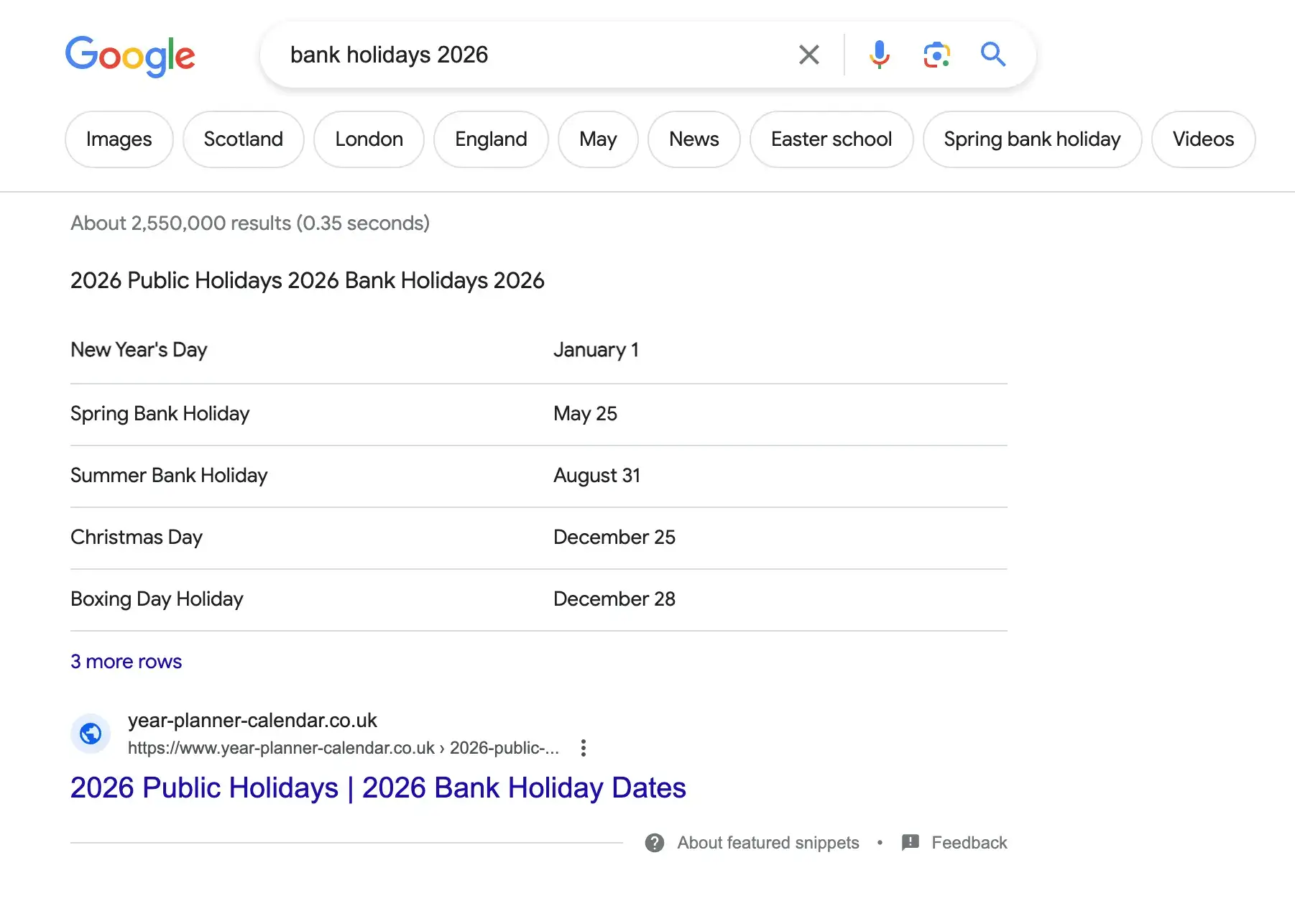
Sports Teams
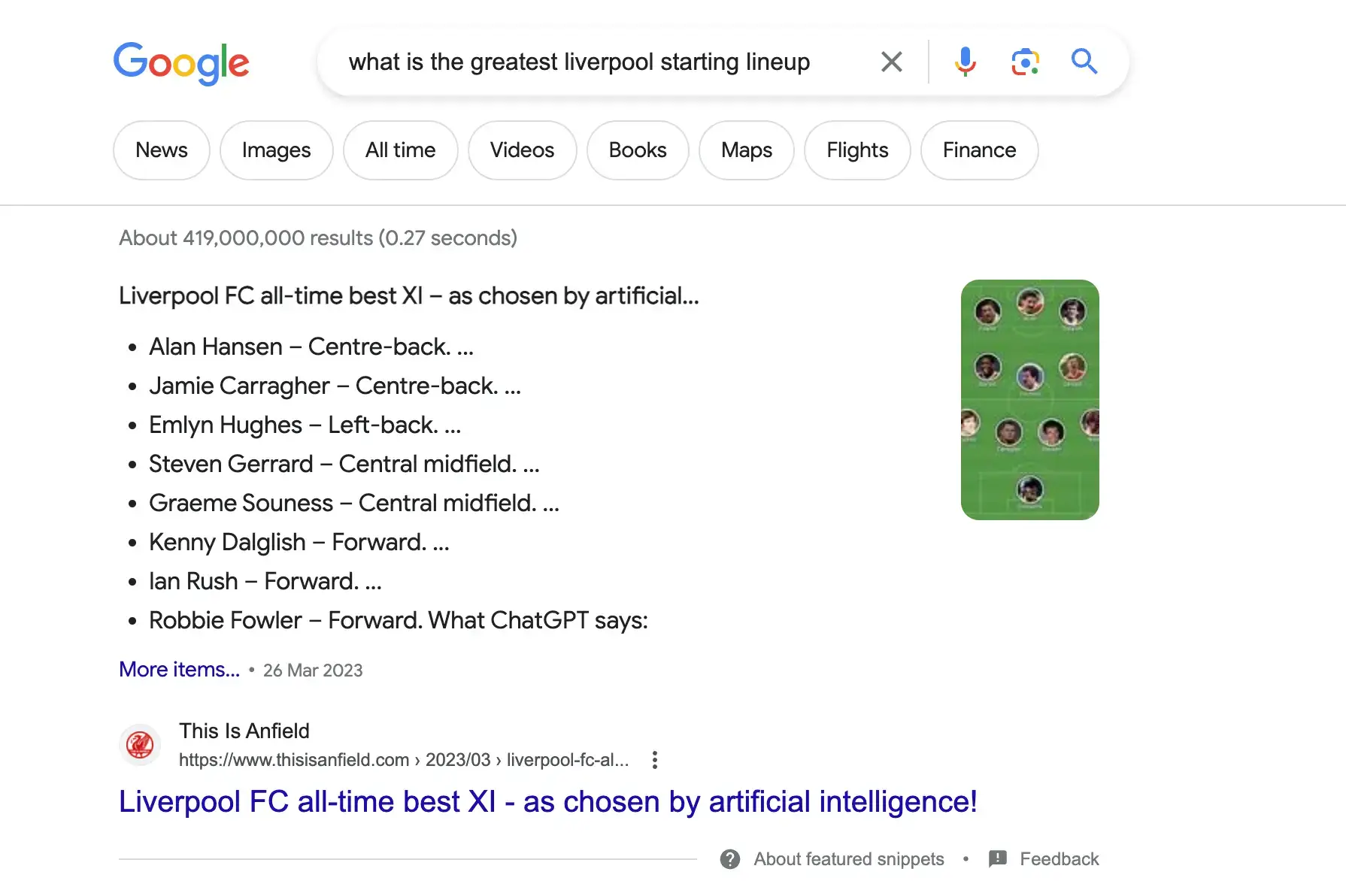
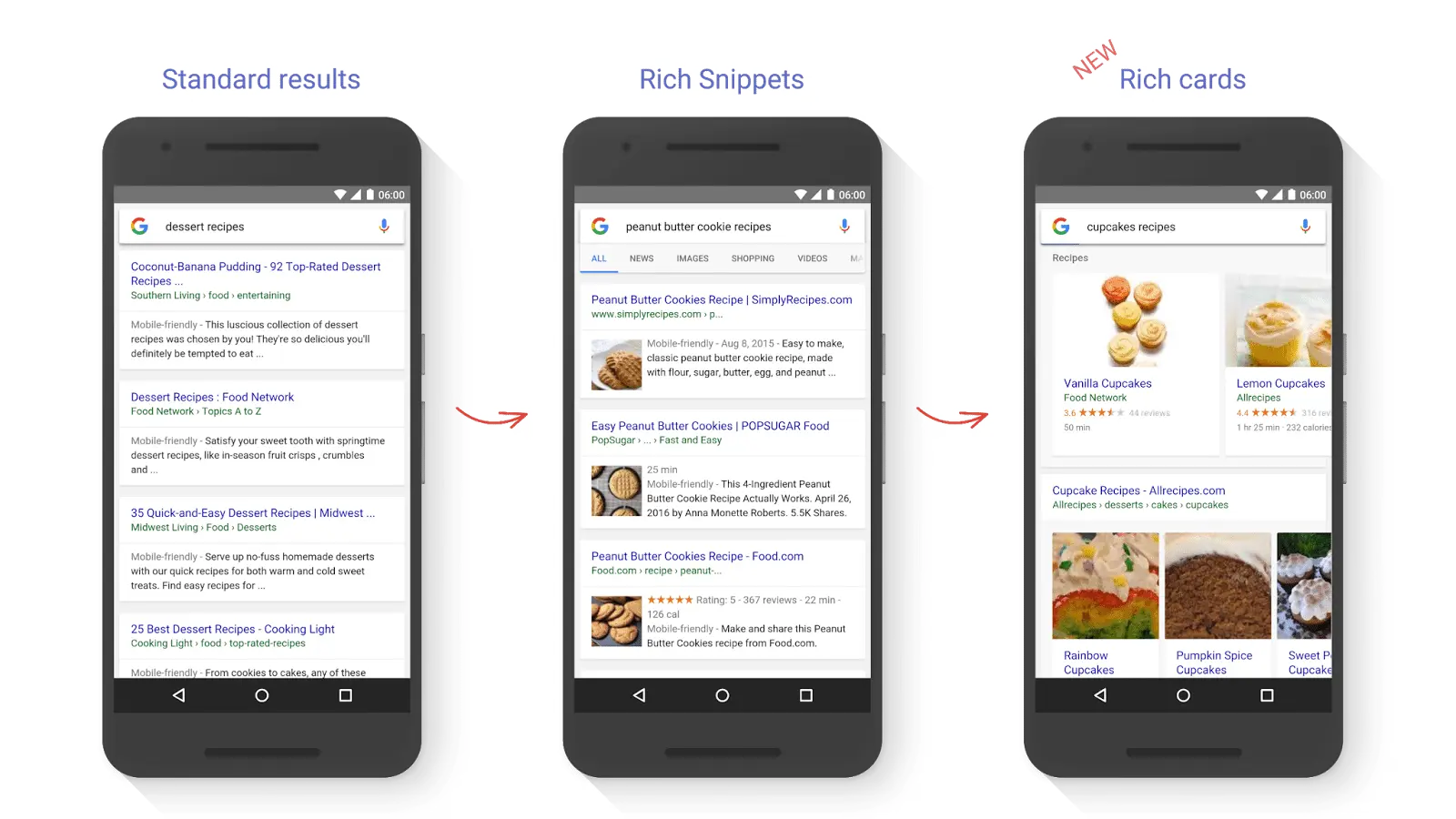
Google introduced Rich Cards in May 2016 to improve mobile search performance. Unlike rich snippets, rich cards appear in squares with minimal text. Half of the card is the title and star rating; half of the card is an image.
You may have encountered other rich results during your time searching. Answers pertaining to things like dates, measurements and definitions are often sourced from Google’s own knowledge graph, and not from websites. Things like filmographies are also sourced from the knowledge graph.
For information about the knowledge graph and SEO, see our glossary page on the knowledge graph.
The size and prevalence of rich answers makes them obscure traditional search results. Rank 1 is moved down the page to around the position of rank 2 and so on. As such, no SEO strategy is complete without a strong rich answer targeting component.
As AI becomes more and more prevalent in search, rich answers and AI generated answers will only command more of the search engine results pages.
However, when choosing which rich results to display, Google takes many factors into account. So, creating rich snippet-worthy content is a tricky and delicate process.
There are a few components that any web page needs before Google will consider it as a rich answer:
If the page does a better job at answering a question or addressing a query than any other page, it may well make the grade for a rich answer. SEO agencies can help you write informative content with the relevant keyword vocabulary to give your pages a stronger chance of being chosen as a rich answer.
Schema markup is the key to getting a page considered as a rich answer. It’s a kind of code vocabulary that allows web developers to tell search engines more about certain entities on their site. For example, Google may see the words “Go Up” as a simple verb and direction, but schema markup can tell them it is the name of a company.
At the moment, Google only returns rich answers for popular questions or searches that can be addressed in a simple box. In depth keyword research allows you to identify which search that your company could provide the best answer to and optimise the page to give it more chance of appearing as a rich result.